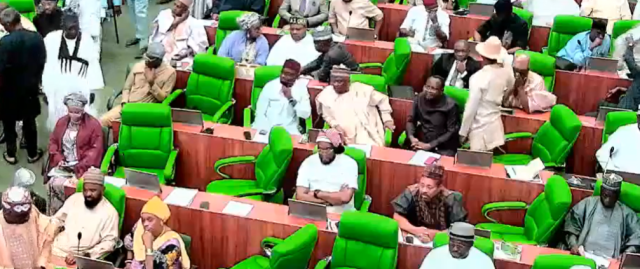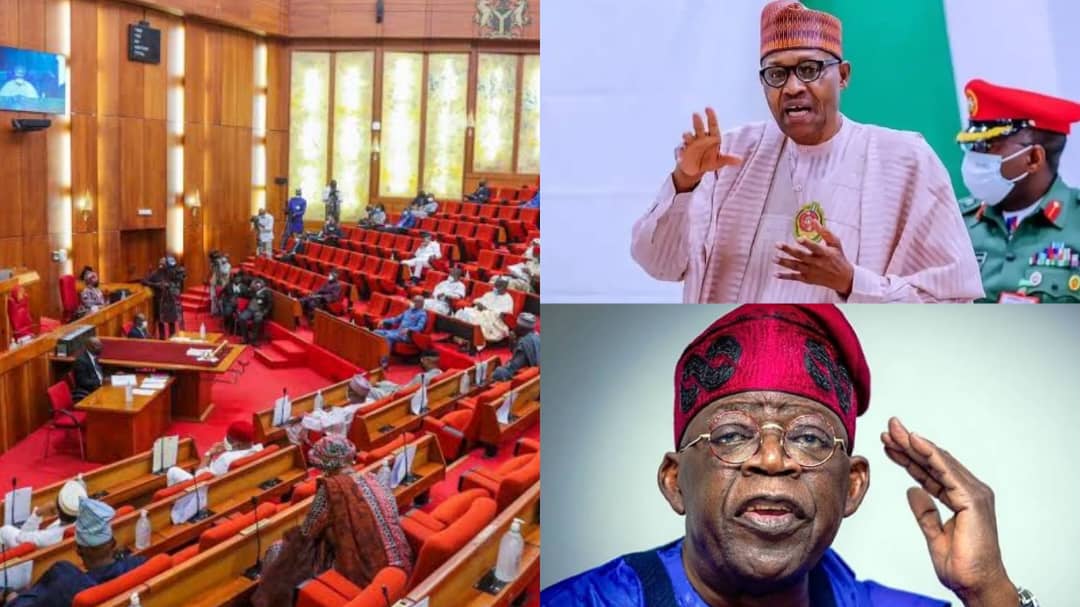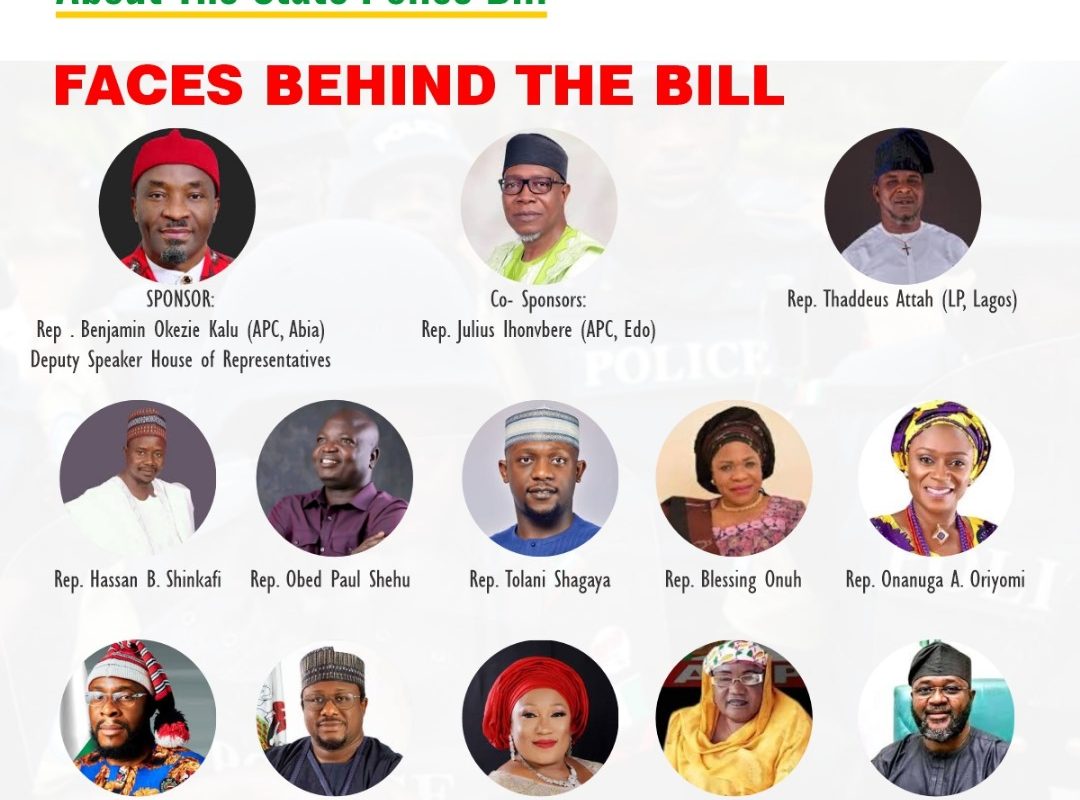The motive behind the introduction of the two very contentious bills, the NGO regulation and Social Media censorship bills.

The hide-and-seek surrounding the two most contentious bills in the country right now, the Non-Governmental Organisation (NGOs) regulations and the Cybercrimes bills, leaves much to be desired.
More so, the circumstances surrounding the introduction of the two Bills on the floor of the House of Representatives also call for concern.
The Bill for an Act to Amend the Cybercrimes (Prohibition, Prevention, Etc.) Act, 2015 and for Related Matters (SB.188)” presented by Leader of the House, Rep Julius Ihonvebere (APC, Edo). Although it emanated from the Senate and was presented on the floor of the House, on 13 February 2024. When the Cybercrimes bill was introduced, it was not listed on the order paper.
On the other hand, “A Bill for an Act to Establish Non-Governmental and Civil Society Organizations Agency for the Promotion of Social Development Activities in Nigeria and for Related Matters (HB. 941)” sponsored by Rep. Sada Soli (APC, Katsina) was reintroduced on 8 February 2024 but copies were not made available to members to read through and understand, which fell short of standard parliamentary procedures.
The two bills are perceived to be very controversial going by the rising awareness and engagements going on in the social space as regards freedom of expression as a fundamental human right, and the slogan “no gree for anybody” which might just be another reason for the agitations against the proposed Bills.
According to Statista, the total number of people on social media as of January 2023 was 31.6 million. As more voices join the conversation online, there’s a growing debate about how to keep things in check without suppressing free speech.
The Cyber Crime Bill / Motives
Why is the executive and the national assembly head bent on amending this piece of legislation?
These reasons are contained in the proposed bill as introduced by Senator Shehu Buba (PDP, Bauchi) in 2023. Several attempts have been made by past assemblies to enact the law but the media, civil society organisations and members of the public kicked against it saying the motive was to gag the people.
On February 8, 2024, Femi Gbajabiamila, Chief of Staff to President Bola Ahmed Tinubu, said social media has become a societal menace, as he stated that users spread misinformation on social media platforms, hence the urgent need for regulation. The call, however, met with fierce opposition from various critics.
This is not the first time Gbajabiamila, who was the Speaker of the House of Representatives during the administration of former President Muhammadu Buhari, has called for the regulation of the civic space. On June 28, 2021, he stated that social media must be regulated to prevent its, “evil from taking root in the country.” He said the National Assembly had been considering regulating social media for a long time but was reluctant due to outcries by Nigerians.
The current Speaker of the House of Representatives Rep. Tajudeen Abbas (APC, Kaduna) rallied support for his predecessor and former colleague at a world press conference at his office in Abuja on 8 February 2024, noting that there has been a rise in social media dissemination of fake news and slanderous information targeted at the former Speaker which he said “points to the danger of an unfettered and unaccountable social media.”
He stated: “Such acts not only undermine the integrity of our democracy but also erode the fabric of our national unity. Yet, Femi is just one of the millions of Nigerians who suffer cyberbullying and coordinated campaigns of defamation daily. Too many victims are not as powerful as him to defend themselves.”
But one can not forget in a hurry how the Tinubu-led APC benefited immensely from social media as it was a major campaign tool used to push out former President Goodluck Jonathan.
Background about the Bill
The bill is titled: “A bill to amend the Cyber Crimes Act, 2015 and for Matters Connected Therewith, 2023.
The institutional framework of the bill is for the prohibition, prevention, detection, investigation, and prosecution of cybercrimes in Nigeria. The Act is a legislative response to the increasing rate of fraudulent activities in cyberspace for which there had never been any specific statutory or regulatory regime in the country. The Act also reflects a positive legislative effort to ensure the protection of information which is vital to national security, by providing for the designation of computer systems or networks containing such information, as constituting Critical National Information Infrastructure. The Act also aims at protecting intellectual property and privacy rights in addition to the foregoing objectives.
The Act is a well-articulated effort to discourage some behavioral activities within cyberspace by an outright legislative proscription. For example, behavioral patterns such as cyberstalking, cybersquatting, computer-related fraud and forgery, cyber terrorism, and the like, are prohibited and violations attract a wide range of sanctions, including monetary fines and terms of imprisonment under the Act.
In October 2023, Senator Shehu Buba (PDP, Bauchi), introduced it seeking to among other things, correct errors contained in the principal act and empower the Act. It was read for the first time on 18 October 2023. Leading the debate on the proposed amendments, Buba said it was designed to remove encumbrances to the proper implementation of provisions of the Act.
Buba said, “This Bill seeks to amend Section 44 as well as the long title to insert some consequential omissions from the act. The digital and information technology age has created new avenues and tools for committing traditional crimes and new forms of crimes.
“The architecture of the digital world challenges law enforcement institutions and the criminal justice system to devise measures and procedures to contend with digital or cybercrimes. In Nigeria, there has over time been a significant increase in internet-based advance fee fraud. There are cases of hacking into emails, and websites and infringement on the privacy rights of persons and institutions which call for an urgent solution.
“Legislation on advance fee fraud is among the earliest interventions by the Nigerian Government on cybercrimes, but the law is inadequate to meet the intricacies of technological development. The most recent statute on cybercrimes in Nigeria is the Cybercrimes (Prohibition, Prevention, etc.) Act, 2015.
“The vaunted objectives of this Act include the provision of an effective and unified Legal, regulatory, and institutional framework for the prohibition, prevention, detection, prosecution, and punishment of cybercrimes in Nigeria. The Act is designed to ensure the protection of critical national information infrastructure and to promote cyber security, protect computer systems and networks, electronic communications, data and computer programs, intellectual property, and privacy rights.
“The second schedule to this Act will enable the complying party’s credit the Fund with that which is the intendment of the draftsmen under Section (1) of Section 44 of this Act. Equally, there has not been any ‘Compliance Monitoring System” in Subsection 6(a) of Section 44 of the Act.
“The National Security Adviser will ensure Compliance Monitoring System in making credit to the Fund by the specified businesses in the Second Schedule. National Security Architecture to help safeguard, protect, and defend national economic, political, and security infrastructures, advance national digital well-being and deter and react with both defensive and offensive capabilities in cyberspace.
“Realigning with National Cybersecurity Policy and Strategy on Nigeria Cyber Threat Profile – over 7 major cyber threats are classified as being inimical to national security and economy.”
NGO Bill
This Bill as stated above draws a lot of sentiments and the Civil Society Organisations see it as a threat to their operational freedom to question the actions and policies of the government. The Bill is perceived to be dangerous and oppressive.
According to Amnesty International via a post on microblogging platform X, the bill “violates Nigerians’ human rights and gags civil society in the country.”
“Amnesty International calls on the members of Nigeria’s House of Representatives to immediately reject the dangerous and oppressive bill reintroduced by Sada Soli to violate Nigerians’ human rights and suppress civil society in the country.”
Rep. Sada Soli (APC, Katsina) in his introduction of the Bill said it seeks to establish the legislative framework to regulate the activities of NGOs and Civil Society Organisations (CSOs).
In 2017, Buba Jubrin similarly sponsored a bill that seeks to regulate NGOs and CSOs. The bill passed a second reading at the House and was subsequently referred to the Committee on Civil Society Organisations and Development Partners.
On the day of the public hearing on the bill, scores of protesters marched to the National Assembly asking that the bill be dropped. Members of the CSOs interpreted the bill as an attempt by the government to gag civil movements.
In 2019, the Speaker of the House, Femi Gbajabiamila, said the lower chamber would revisit the NGO bill following allegations by the Army against some NGOs in the North-east.
A statement by the ‘Operation Lafiya Dole’ Theatre Command in Maiduguri, Borno State, said the army had “credible intelligence” that the NGO supplied food and medication to the outlawed armed group.
When the bill was presented on Wednesday for a second reading, the Deputy Majority Leader, Peter Akpatason, said due to the sensitive nature of the bill, copies of the bill should be distributed to members.
“I want to suggest that he (the sponsor) should present copies to the House so that we will go through it and internalise it very well before we will make contributions on the floor of the House,” Akpatason said.
The Bill as sighted by OrderPaper, states as follows;
“The Agency shall encourage Non-governmental Organisations and Civil Society Organisations to accomplish their mission according to the laws.
“To ensure Transparency and Accountability of operations of Nongovernmental Organisations and Civil Society Organisations.
“To supervise Non-governmental Organisations and Civil Society Organisations to ensure they operate according to laws.”
And section 8 (1) part three of the proposed legislation further states;
“To facilitate and coordinate the work of all national and international Non-governmental Organisations operating in Nigeria.
“To maintain the register of national and international Non-governmental Organisations operations in Nigeria within the perceived sectors, affiliations, and their activities.
“To advise government on the activities of the Non-governmental and the roles in developing within Nigeria.
“To conduct regular review of the register to determine the consistency in the reports submitted by the Nongovernmental Organisations and the Civil Society Organisations and the body.
“To provide policy guidelines for Nongovernmental Organisations and Civil Society Organisations for harmonising their activities within the national development plan of Nigeria.
“To receive, discuss, and approve code of conduct prepared by the Nongovernmental Organisations and Civil Society Organisations in Nigeria.
“And doing all such things incidental to the following functions which is the opinion of the Board is calculated to facilitate the duties of the agencies under the Act.



